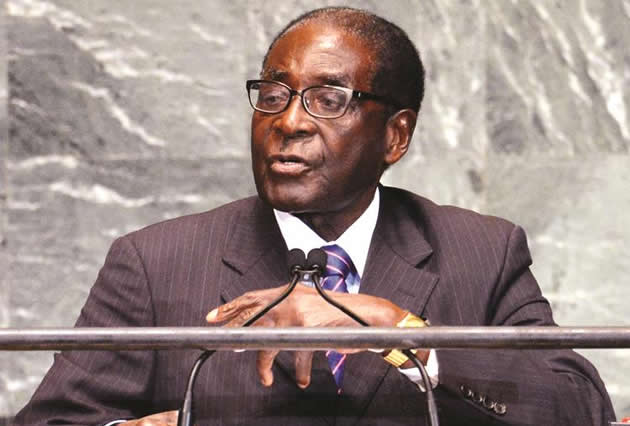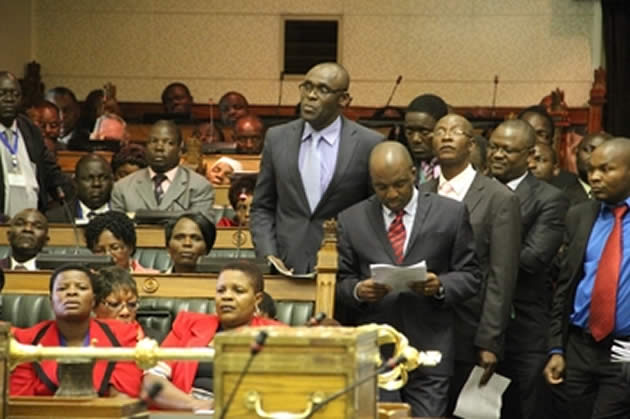Why President Mugabe is loved by Africans at home, abroad

Manenji Mukwanya Correspondent
In their colourful T-shirts, the men and women of the December 12 movement parade in front of Zimbabwe’s permanent mission to the United Nations in New York.
As they march and speaker after speaker takes to the platform, one thing is very clear, President Robert Mugabe is not without allies in the West. In what has become an annual event, the D12 movement and its affiliates took to the streets to again remind the world of the injustices Zimbabwe is facing because of its black empowerment drive that stroked Western imperialists the wrong way when Zimbabwe undertook the Land Reform Programme.
The demonstration outside Zimbabwe’s New York Embassy attracts the attention of African Americans because they understand what it is like to be in President Mugabe’s shoes. They face racism and discrimination on a daily basis.
Their children are dying on the streets; shot like dogs, reminiscent of the pre-independence era in Africa where the indigenous blacks were treated as second class citizens by their colonial masters.
President Mugabe is a symbol of the resilience that African people have shown over the centuries in the face of open and hidden oppression carried out mostly by people of Anglo Saxon origin. Much like the Statute of Liberty, President Mugabe is a symbol from which African people across the globe draw inspiration in their fight to be treated fairly and justly in the societies they live in.
The Land Reform Programme, which reached its crescendo in the early 2000s, saw President Mugabe presiding over the taking over 90 percent of Zimbabwe’s arable land from the hands of 4 500 white commercial farmers and allocating it to over 300 000 black families, stands as a testament that the man means business.
Many within the African American community believe that the slavery reparations debate, which has been doing rounds for decades, could finally come to an end if this African icon picks up their cause.
That reparations have to be paid is obvious. However, the resistance to paying reparations by the establishment has gone to extreme measures in order silence those who demand answers. The African American community is well aware of the establishment’s hypocrisy, which seeks to downplay the slave trade, but at the same time cries more than the bereaved when it comes to discourse surrounding reparations for the Jews.
The cause of the African child has always been dear to President Robert Mugabe, a cause that is deeply entrenched in the ethos of pan Africanism. Whether one lives in America, Europe, Africa, the challenges that the black child faces are rooted in the imperialist agenda of white capital.
The African child has excelled in every field — sport, science, literature, you name it — but all these accomplishments are swept under the rag or accredited elsewhere. The common drive of this agenda is to ensure that Africa and her children remain bereft of the realisation that Africa is not a dark continent, but the cradle of civilisation.
This is what President Mugabe annually reminds those that seek the continued enslavement and oppression of the black child, at the United Nations. This is what he strives to impart to Africans at the African Union, and other platforms; that Africa does not need aid, but demands non-interference in its affairs, on both the political and economic front.
If left to its own devices Africa would find its way; most of the conflicts ravaging the continent are externally driven, and have to do with the fight to control Africa’s vast resources.










Comments